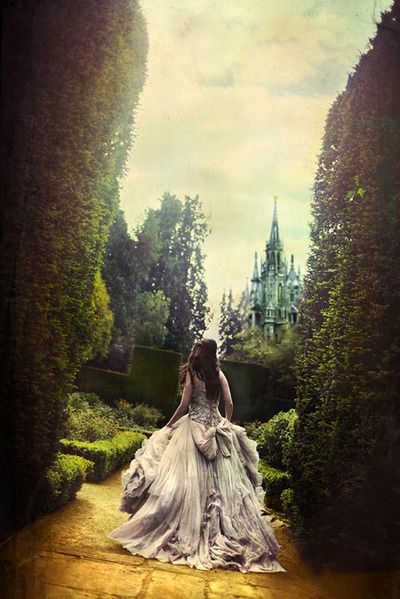Featured
- Get link
- X
- Other Apps
See, Shakespeare Agrees With Me! I Must Be Right: A Poetry Analysis
See, Shakespeare Agrees With Me! I Must Be Right
A Poetry Analysis by The Reformist Princess
It seems customary to share our favourite recipes, movies and even songs. But what happened to poetry? In my hope to rekindle love for a somewhat lost art. I thought I’d provide an analysis of what is not just a poem to me, but an affirmation of the most important thing in existence. Love. I’d also like to use Shakespeare’s wisdom on the subject, to prove my own theory on love. Having the Elizabethan Bard on your side definitely adds some credibility.
To me, Sonnet 116 is the best thing Shakespeare ever wrote. People who don't read a lot of his work think he's an idealist, but they couldn't be further from the truth. He was a super cynic. That's why almost all his characters die in his plays, usually with a dab of black humour. He mocked the stupidity of idealists. And let's be honest, whilst he loved the drama, he never wrote love stories that ended well. Most of his characters became chronically depressed, committed suicide, were brutally murdered or became insane. His poems were often filled with egotism and a mockery of the hypocritical nature of the rich upper class.
I always find it funny, as I'm sure he would have, when rich, posh, upper class elitists take his mockery seriously. The irony of it is delicious. The mocked, reading his mockery as a justification for the very thing he detests! Shakespeare is posthumously laughing at them and they don't even know it! Way to take out historical revenge on the snobby.
Now whilst I know Shakespeare's cynicism and black adder style humour would definitely appeal to some, I like this poem so much because it's the one time he doesn't do this. It's the one time, for a brief moment, he becomes idealistic. About the most important subject in the world.
Now, let’s just condition this with the knowledge that when it comes to love, William Shakespeare was by no means a man of integrity. He left his wife in Stafford to constantly travel to London to engage in hedonism and debauchery. He had a new mistress on the go nearly every day of the week.
Yet legend has it, he wrote this poem after a few nights of wild partying in London. Allegedly, he catches up with old friends who married as childhood sweethearts. He watches them as they drink at the pub together, is reminded of all the toils of the years, how much each of them had changed, all their imperfections and failings towards themselves and each other.
And yet, in spite of all this, he sees them find joy in each other. Still. After all this time. After all the external beauty has faded away. After the lust and romance was long gone, there they were. Finding joy. That's what he wrote this sonnet about. About what the idealists among us would call, true love.
In this poem, he describes a form of love that transcends everything: appearances, history, time, space, death. Something nothing can quell. Something that whilst life inherently changes around it, remains unchanged. An ‘ever-fixed mark’. The ‘star’ for us to look up to in the darkness.
He doesn't even specify that it's romantic love. Just love, that has a life of its own. When I read what he says about it, I think it's kind of what Jesus was saying too. John opens his gospel with the simple phrase, ‘God is love.’
Love is itself a higher power. The thing that we can always fall back on. That which will exist in spite of us all. In short, ‘I am God,’ says love. And as complex as my struggles with faith and religion have been, this is one truth that to me has always remained universal. Love is the core of all meaning and all existence. Something we will never lose.
At the end he says, if I'm wrong and this love doesn't exist, then nothing I've ever done, nothing anyone has ever done means anything. Is this a cry of desperate hope or an assurance that he’s willing to pitch his entire life on? I think the latter!
Just like Shakespeare was, I'm prone to suffer the plague of the poet's soul. I often find myself thrown into existential crisis as a result. And yet, in spite of my philosophical battles, I always find assurance in this love. I always find peace in knowing that in all the suffering, love will go on and with it so will the meaning of life.
To me, love is my faith. A faith with no rules of interpretation or conditions. Simple as it should be. I believe it with an inexplicable assurance based simply on the fact that I've seen it. I've felt it. It's beyond our psychology and cognitive dissonance. It is a force in itself. Maybe this is what Star Wars was talking about? But there's a discussion for another day.
I'm not always an intellectual equal when talking philosophy but this is often what I'm harping on about when I talk with my friends and family about what I believe. And now I can add the line, “see, Shakespeare agrees with me! I must be right.” Thank you Sonnet 116 for backing me up.
- Get link
- X
- Other Apps
Popular Posts
Dear COVID: A Personal Letter to an Impersonal Thing
- Get link
- X
- Other Apps



Comments
Post a Comment